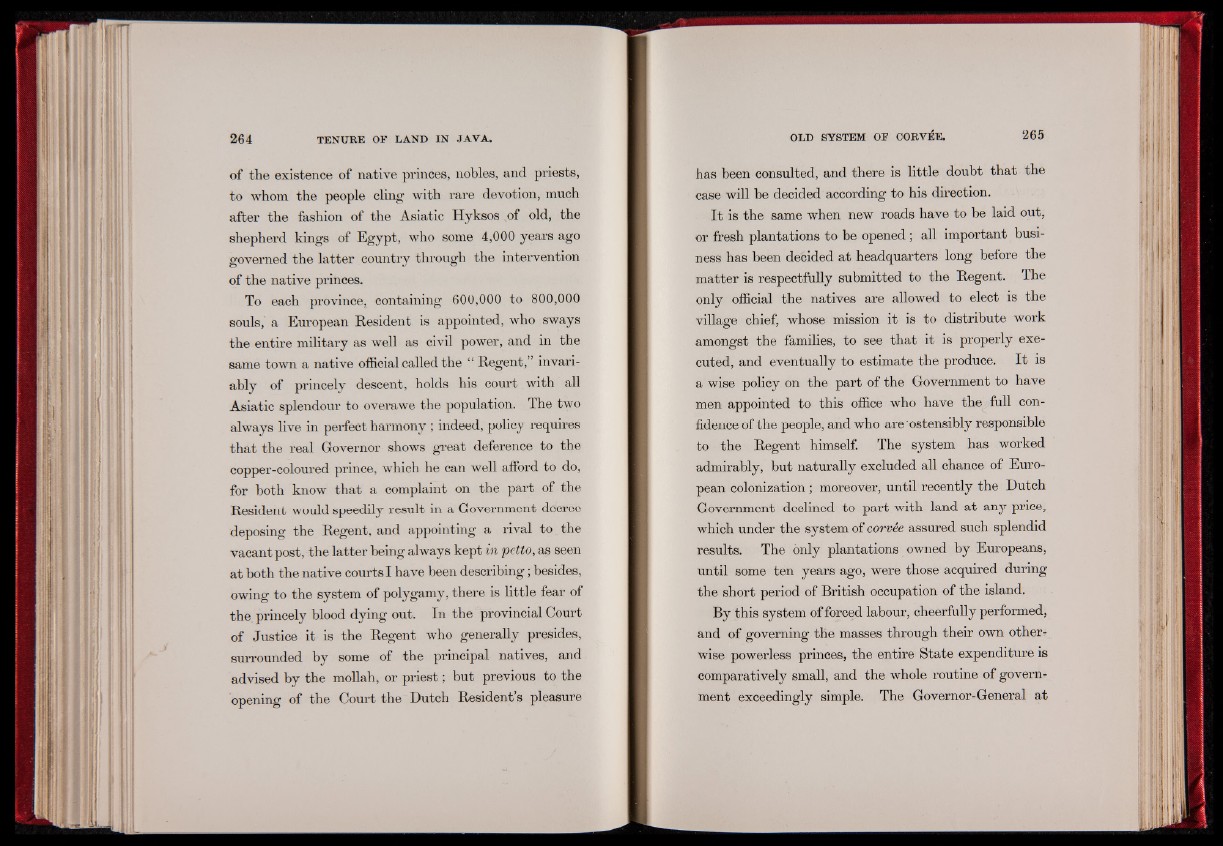
of the existence of native princes, nobles, and priests,
to whom the people cling' with rare devotion, much
after the fashion of the Asiatic Hyksos of old, the
shepherd kings of Egypt, who some 4,000 years ago
governed the latter country through the intervention
of the native princes.
To each province, containing 600,000 to 800,000
souls, a European Resident is appointed, who sways
the entire military as well as civil power, and in the
same town a native official called the “ Regent,” invariably
of princely descent, holds his court with all
Asiatic splendour to overawe the population. The two
always live in perfect harmony ; indeed, policy requires
that the real Governor shows great deference to the
copper-coloured prince, which he can well afford to do,
for both know that a complaint on the part of the
Resident would speedily result in a Government decree
deposing the Regent, and appointing a rival to the
vacant post, the latter being always kept in petto, as seen
at both the native courts I have been describing j besides,
owing to the system of polygamy, there is little fear of
the princely blood dying out. In the provincial Court
of Justice it is the Regent who generally presides,
surrounded by some of the principal natives, and
advised by the mollah, or priest; but previous to the
opening of the Court the Dutch Resident’s pleasure
has been consulted, and there is little doubt that the
case will he decided according to his direction.
I t is the same when new roads have to be laid out,
or fresh plantations to be opened ; all important business
has been decided at headquarters long before the
matter is respectfully submitted to the Regent. The
only official the natives are allowed to elect is the
village chief, whose mission it is to distribute work
amongst the families, to see that it is properly executed,
and eventually to estimate the produce. I t is
a wise policy on the part of the Government to have
men appointed to this office who have the full confidence
of the people, and who are ostensibly responsible
to the Regent himself. The system has worked
admirably, but naturally excluded all chance of European
colonization; moreover, until recently the Dutch
Government declined to part with land at any price,
which under the system of corvee assured such splendid
results. The only plantations owned by Europeans,
until some ten years ago, were those acquired during
the short period of British occupation of the island.
By this system of forced labour, cheerfully performed,
and of governing the masses through their own otherwise
powerless princes, the entire State expenditure is
comparatively small, and the whole routine of government
exceedingly simple. The Governor-General at